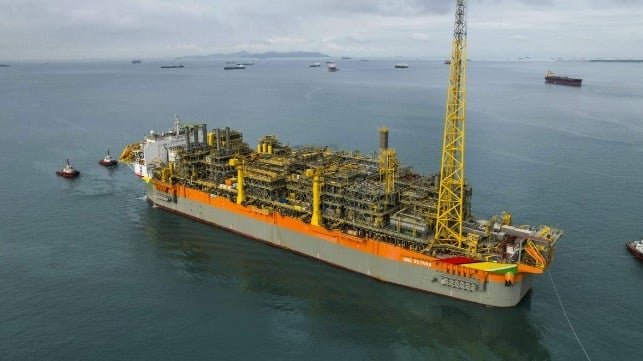Guyana Passes Environmental Legislation to Hold Oil Companies Accountable for Spills
Guyana’s National Assembly recently approved a significant environmental bill aimed at holding companies and offshore operators accountable for damages resulting from oil spills. The move comes as offshore oil production in Guyanese waters continues to expand, prompting the need for robust national environmental safeguards to combat the effects of oil pollution. President Irfaan Ali is expected to give his assent to the bill in the near future.
Mark Phillips, Guyana’s Prime Minister, emphasized the importance of establishing clear oversight authority for environmental protection in a major oil-producing nation like Guyana. The legislation seeks to align with best practices and ensure that all operators bear full responsibility for safeguarding the environment.
Key provisions of the bill include the requirement for companies involved in oil exploration and production to provide mandatory financial assurance. This financial guarantee will cover potential oil spills, ensuring that adequate funds are readily available for clean-up operations. Non-compliance with these regulations will result in penalties, including the suspension of licenses.
The bill designates the Civil Defense Commission (CDC) as the national authority responsible for coordinating response efforts and minimizing the impact of any oil spills. The CDC will also conduct regular inspections and audits to identify and address potential risks proactively.
Guyana’s Growing Oil Sector
According to the finance ministry, Guyana’s oil sector experienced a remarkable 58% expansion in 2024. This growth propelled Guyana to become the fifth largest crude exporter in Latin America, following Brazil, Mexico, Venezuela, and Colombia.
The first offshore oil block in Guyana is operated by an Exxon Mobil-led consortium, which achieved an average daily production of 616,000 barrels per day (bpd) last year from three operational FPSOs in the vast Stabroek block.
This production is set to increase to approximately 940,000 bpd later this year with the addition of a fourth FPSO, named One Guyana, constructed by SBM Offshore and recently deployed in Guyanese waters. The FPSO has a capacity of 250,000 bpd.
Advocates of the oil spill legislation in parliament underscored the need to balance the rapid growth of Guyana’s oil sector with stringent environmental protection laws to safeguard the country’s natural resources and biodiversity.

